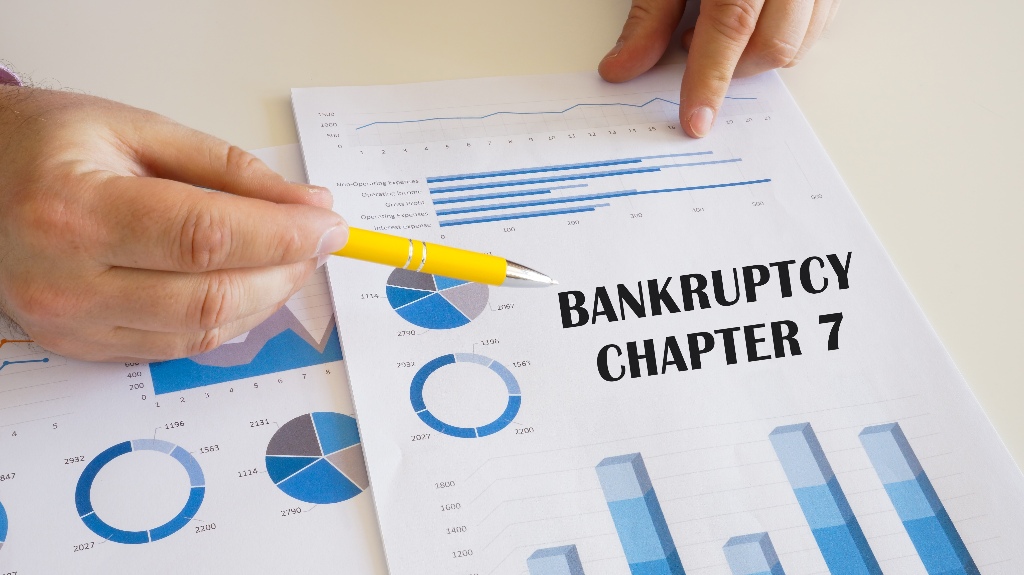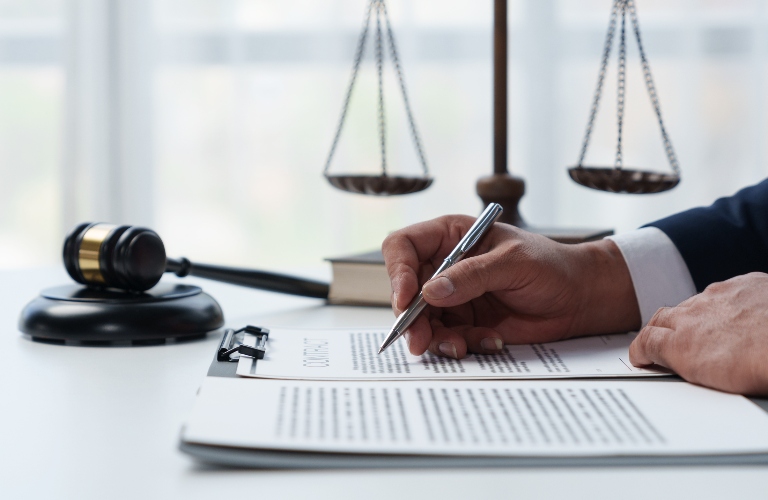
Applying for bankruptcy can be a crucial step in managing overwhelming debt and offering much-needed financial assistance. At Duncan Bankruptcy Law, we understand the complexities and emotional toll that financial difficulties can bring. If you are considering filing for Chapter 7 bankruptcy in Georgia, it’s important to know which debts can be eliminated and which will remain. This knowledge can help you make informed decisions about your future financial situation.
What Is Chapter 7 Bankruptcy?
Chapter 7 bankruptcy, also known as “liquidation bankruptcy”, allows individuals to get rid of most of their debts that are not secured. In exchange, a bankruptcy trustee may sell some of your assets that are not exempt from creditors. Georgia has some generous exemption laws that allow most people to keep essential assets such as their home, car and personal items.
To be eligible for chapter 7, you must pass the means test that compares your income to the median income in Georgia. If your income exceeds the threshold, you may need to file under chapter 13.
Debts That Can Be Discharged in Chapter 7
One of the most significant benefits of filing for Chapter 7 bankruptcy is the ability to eliminate certain types of debt through a legal process known as discharge. This process frees you from personal liability for those debts, preventing creditors from attempting to collect them.
The following are common types of unsecured debt that are typically discharged under Chapter 7 bankruptcy:
1. Credit card debt: Balances owed on credit cards without collateral are usually discharged in Chapter 7. This includes debts used for daily purchases, not luxury items or cash advances close to filing.
2. Medical bills: Outstanding hospital bills, doctor’s visits, prescriptions, and other medical expenses are often discharged.
3. Personal loans: Unsecured loans between individuals or from lenders without collateral can be discharged in bankruptcy.
4. Utility bills: Past-due accounts for electricity, gas, water, internet, or phone service can be discharged, but service may need to be restarted after bankruptcy with a deposit.
5. Rent or lease obligations: If you’ve moved out but owe money on unpaid rent or leases, these amounts can often be released.
6. Judgments for personal injuries (excluding DUI or intentional harm): Civil court judgments for accidental injuries may be removed if the injury did not result from driving under the influence of alcohol or other substances, or intentional misconduct.
7. Old income tax debts: Certain federal and state taxes older than three years, if there are valid filed returns, can be discharged if they meet specific criteria under the Bankruptcy Code.
8. Business debts: Sole proprietors who incurred debts while running a business can have those debts dismissed, provided there was no fraudulent or misleading behavior involved.
It’s important to note that, although these debts can usually be discharged, the court will need to approve your case and you will need to complete all the necessary steps. For example, you will need attend the creditors’ meeting, and complete credit counseling.
Debts That Cannot Be Discharged in Chapter 7
While Chapter 7 bankruptcy may provide significant relief from debt, not all types of debt are eligible for discharge. For example, Congress has established certain exceptions to the discharge of debts based on public policy considerations, particularly for debts involving trust, safety, or legal obligations. The following types of debts typically cannot be discharged through Chapter 7 bankruptcy proceedings:
Most student loans: Federal and private student loans typically cannot be discharged through bankruptcy unless you can prove that you are facing undue hardship. This is a very difficult legal standard that requires a separate case within your bankruptcy proceedings.
1. Child support and spousal support: These obligations are protected by law and must be continued even after bankruptcy. They are not discharged.
2. Tax debts from the last three years: Taxes that you have not filed a return for, or that are related to fraudulent returns, cannot be discharged in bankruptcy.
3. Fraudulent debt: If you lied about your income or intentionally misled your lender when applying for a loan, you may not be able to have that debt discharged.
4. Other debts: Criminal fines, traffic tickets, restitution to victims, and certain government agency penalties cannot be discharged through bankruptcy.
5. If you were under the influence of alcohol or drugs and caused an accident while driving, the debt resulting from any judgment or settlement for personal injury will not be dischargeable.
6. Luxury purchases made shortly before bankruptcy filing: Any luxury goods or services purchased within 90 days prior to filing for bankruptcy, exceeding $725 as of 2024, may be considered non-discharged. Additionally, cash advances exceeding $1,000 within 70 days of filing can also be assumed to be non-dischargeable.
7. Omission of creditors in bankruptcy petition: Failure to include a creditor in your original bankruptcy schedule can result in debts not being discharged, especially if the omission was intentional. This is especially true for debts related to condo or homeowners’ association fees, which may not be dischargeable if the property is owned at the time of filing for bankruptcy.

8. Divorce settlements: Although property settlements and division of debt from a divorce settlement generally cannot be discharge, this area is complicated and requires professional legal advice. Alimony and child support payments are usually exempt from discharge.
What About Secured Debts?
Secured debts, such as mortgages and car loans, are treated differently in Chapter 7 bankruptcy. While personal responsibility for the debt may be discharged, you must still make payments if you want to retain the property. If you do not make payments, the creditor may repossess the asset or foreclose on it.
How Duncan Bankruptcy Law Can Help
At Duncan Bankruptcy Law, we specialize in assisting Georgia residents with navigating the complexities of Chapter 7 bankruptcy proceedings. With decades of expertise, we guide individuals and families through every stage of the process – from determining eligibility to preparing and filing a petition, and ultimately obtaining a discharge.
If you are struggling with debt and are considering bankruptcy, we encourage you not to face this challenge alone. We can help you regain control over your finances and work towards a fresh start. Contact Duncan Bankruptcy Law today to take the first steps towards financial freedom.


